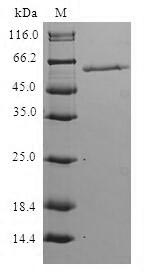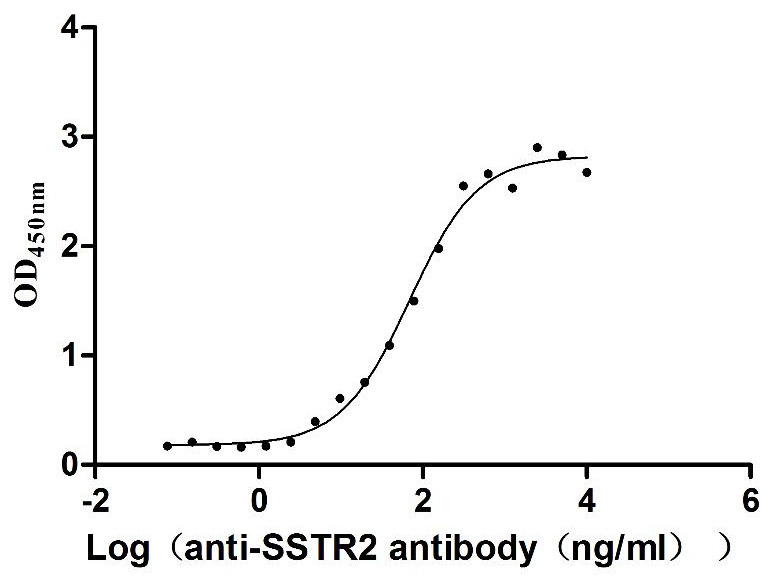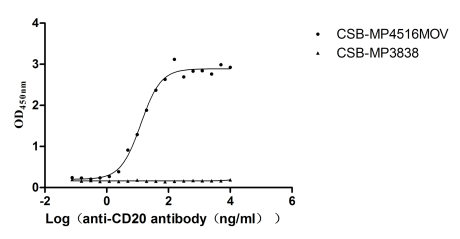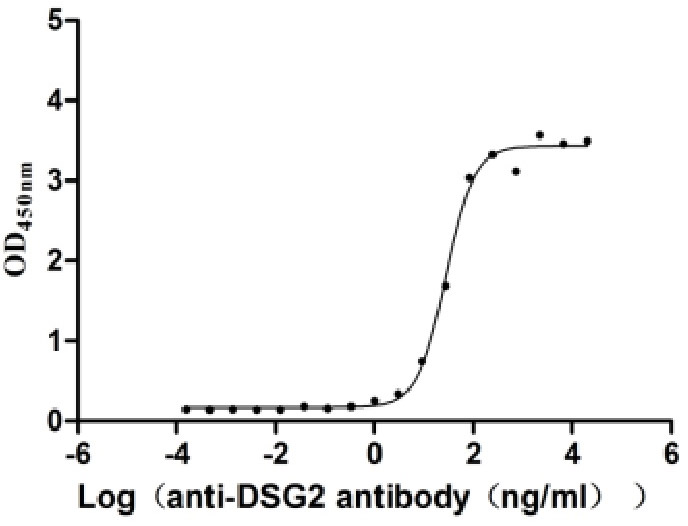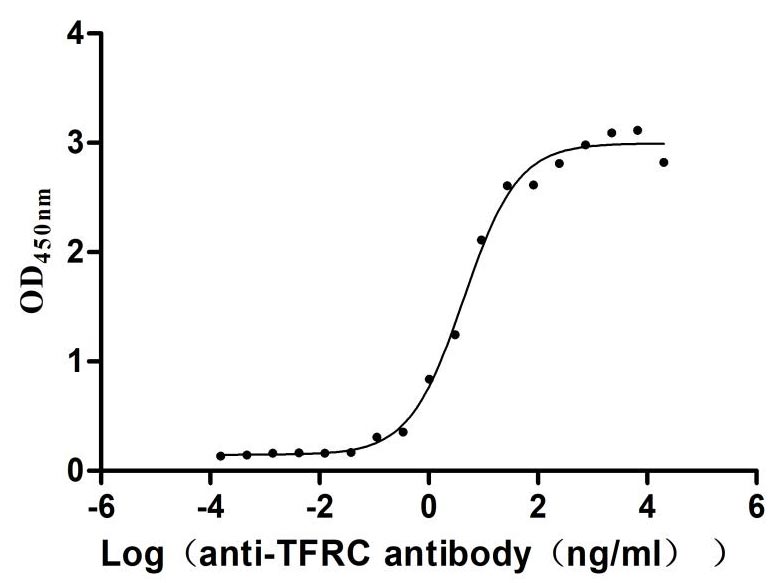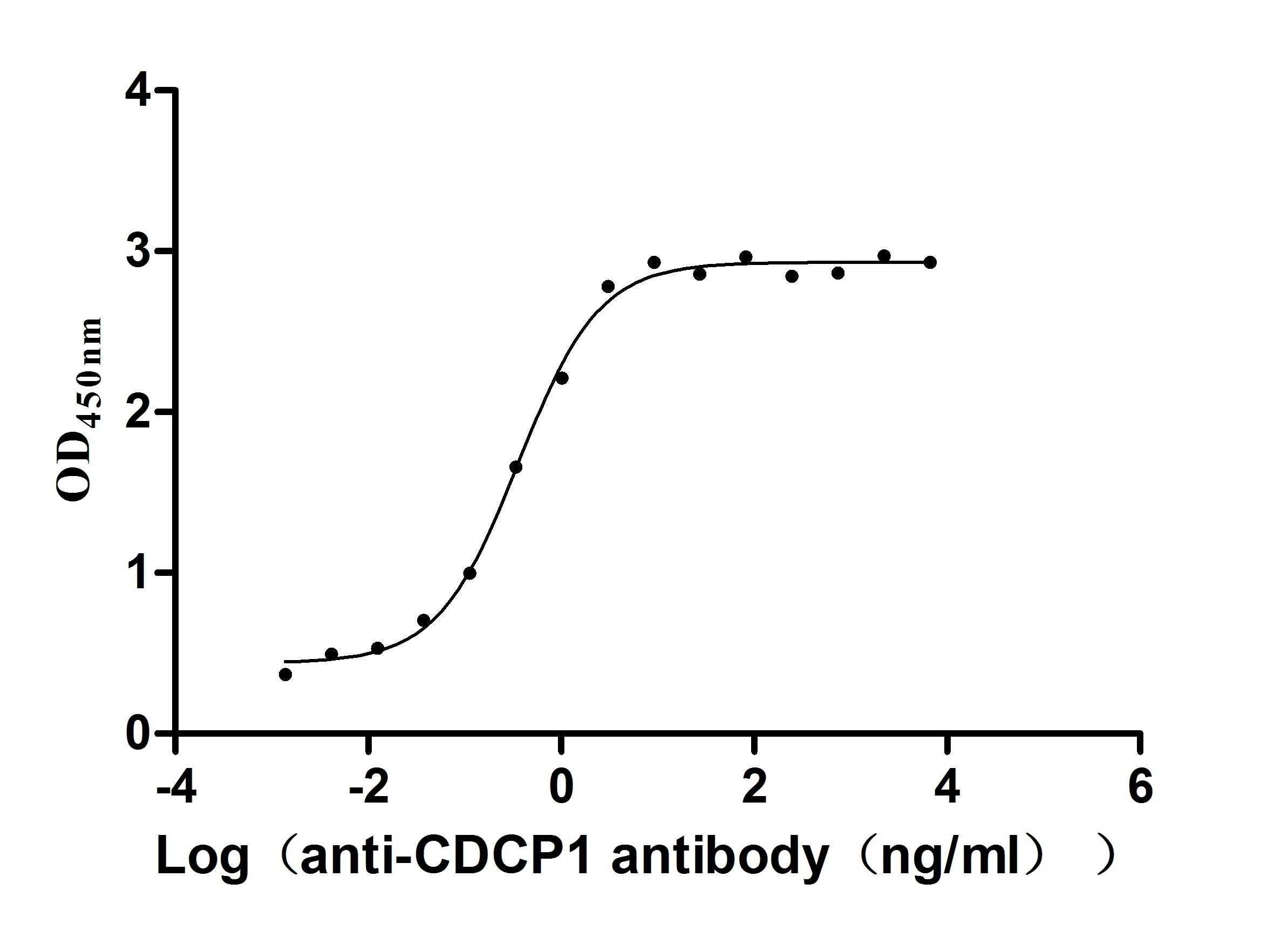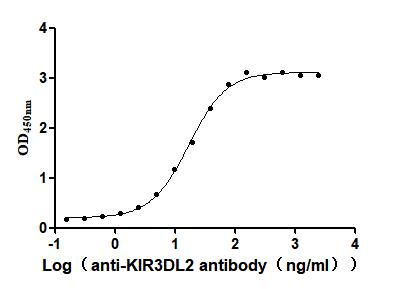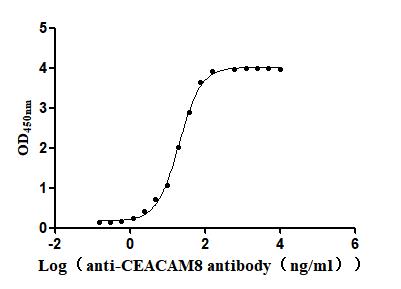Recombinant Human Hermansky-Pudlak syndrome 1 protein (HPS1)
-
中文名称:人HPS1重组蛋白
-
货号:CSB-EP856438HU
-
规格:¥1836
-
图片:
-
其他:
产品详情
-
纯度:Greater than 90% as determined by SDS-PAGE.
-
基因名:HPS1
-
Uniprot No.:
-
别名:Hermansky Pudlak syndrome 1 protein; Hermansky Pudlak syndrome gene; Hermansky Pudlak syndrome type 1; Hermansky-Pudlak syndrome 1; Hermansky-Pudlak syndrome 1 protein; HPS; HPS1; HPS1_HUMAN; MGC5277
-
种属:Homo sapiens (Human)
-
蛋白长度:Full Length of Isoform III
-
来源:E.coli
-
分子量:63.5kDa
-
表达区域:1-324aa
-
氨基酸序列MKCVLVATEGAEVLFYWTDQEFEESLRLKFGQSENEEEELPALEDQLSTLLAPVIISSMTMLEKLSDTYTCFSTENGNFLYVLHLFGECLFIAINGDHTESEGDLRRKLYVLKYLFEVHFGLVTVDGHLIRKELRPPDLAQRVQLWEHFQSLLWTYSRLREQEQCFAVEALERLIHPQLCELCIEALERHVIQAVNTSPERGGEEALHAFLLVHSKLLAFYSSHSASSLRPADLLALILLVQDLYPSESTAEDDIQPSPRRARSSQNIPVQQAWSPHSTGPTGGSSAETETDSFSLPEEYFTPAPSPGDQSSGEDRRKAGGNNS
Note: The complete sequence including tag sequence, target protein sequence and linker sequence could be provided upon request. -
蛋白标签:N-terminal GST-tagged
-
产品提供形式:Liquid or Lyophilized powder
Note: We will preferentially ship the format that we have in stock, however, if you have any special requirement for the format, please remark your requirement when placing the order, we will prepare according to your demand. -
缓冲液:Tris-based buffer,50% glycerol
-
储存条件:Store at -20°C/-80°C upon receipt, aliquoting is necessary for mutiple use. Avoid repeated freeze-thaw cycles.
-
保质期:The shelf life is related to many factors, storage state, buffer ingredients, storage temperature and the stability of the protein itself.
Generally, the shelf life of liquid form is 6 months at -20°C/-80°C. The shelf life of lyophilized form is 12 months at -20°C/-80°C. -
货期:Basically, we can dispatch the products out in 1-3 working days after receiving your orders. Delivery time may differ from different purchasing way or location, please kindly consult your local distributors for specific delivery time.Note: All of our proteins are default shipped with normal blue ice packs, if you request to ship with dry ice, please communicate with us in advance and extra fees will be charged.
-
注意事项:Repeated freezing and thawing is not recommended. Store working aliquots at 4°C for up to one week.
-
Datasheet & COA:Please contact us to get it.
相关产品
靶点详情
-
功能:Component of the BLOC-3 complex, a complex that acts as a guanine exchange factor (GEF) for RAB32 and RAB38, promotes the exchange of GDP to GTP, converting them from an inactive GDP-bound form into an active GTP-bound form. The BLOC-3 complex plays an important role in the control of melanin production and melanosome biogenesis and promotes the membrane localization of RAB32 and RAB38.
-
基因功能参考文献:
- HPS1 mutation is associated with high hypopigmentation in Hermansky-Pudlak syndrome. PMID: 27593200
- BLOC-3 is a Rab32 and Rab38 guanine nucleotide exchange factor, with a specific function in the biogenesis of lysosome-related organelles. Silencing of the BLOC-3 subunits Hps1 and Hps4 results in the mislocalization of Rab32 and Rab38. PMID: 23084991
- Seven mutations (six previously unreported) were described in the HPS1, HPS4, and HPS5 genes among Hermansky-Pudlak Syndrome patients of Mexican, Uruguayan, Honduran, Cuban, Venezuelan, and Salvadoran ancestries. PMID: 21833017
- a previously unreported missense mutation (G313S) at the 3' splice junction of exon 10 of Hermansky-Pudlak syndrome 1 protein resulted in activation of a cryptic intronic splice site causing an aberrantly spliced HPS1 mRNA PMID: 20662851
- Three different mutations in the HPS1 gene were found in the two families. PMID: 20514622
- Data show that recombinant HPS1-HPS4 produced in insect cells can be efficiently isolated as a 1:1 heterodimer, and might function as a Rab9 effector in the biogenesis of lysosome-related organelles. PMID: 20048159
- Description of mutations in HPS genes that cause Hermansky-Pudlak syndrome (review) PMID: 12125811
- Four novel mutations were discovered and the diagnosis of HPS-1, available only on molecular grounds, has important prognostic and treatment implications. PMID: 12442288
- identification as a component of two complexes, BLOC-3 and BLOC-4, involved in the biogenesis of lysosome-related organelles PMID: 12663659
- observations demonstrate that the Hermansky-Pudlak syndrome 1(HPS1) and HPS4 proteins are components of a cytosolic complex that is involved in the biogenesis of lysosomal-related organelles PMID: 12756248
- Biogenesis of lysosome-related organelles complex 3 (BLOC-3): a complex containing the Hermansky-Pudlak syndrome (HPS) proteins HPS1 and HPS4. PMID: 12847290
- Mutations in this gene are associated with Hermansky-Pudlak syndrome type 1. PMID: 16020891
- The first case report of a Chinese Hermansky-Pudlak syndrome patient with a novel mutation on HPS1 gene. PMID: 19665357
显示更多
收起更多
-
相关疾病:Hermansky-Pudlak syndrome 1 (HPS1)
-
组织特异性:Ubiquitous.
-
数据库链接:
HGNC: 5163
OMIM: 203300
KEGG: hsa:3257
STRING: 9606.ENSP00000326649
UniGene: Hs.404568
Most popular with customers
-
Recombinant Rat Intestinal-type alkaline phosphatase 1 (Alpi) (Active)
Express system: Mammalian cell
Species: Rattus norvegicus (Rat)
-
Recombinant Human Somatostatin receptor type 2 (SSTR2)-VLPs (Active)
Express system: Mammalian cell
Species: Homo sapiens (Human)
-
Recombinant Macaca fascicularis Membrane spanning 4-domains A1 (MS4A1)-VLPs (Active)
Express system: Mammalian cell
Species: Macaca fascicularis (Crab-eating macaque) (Cynomolgus monkey)
-
Recombinant Human Desmoglein-2 (DSG2), partial (Active)
Express system: Mammalian cell
Species: Homo sapiens (Human)
-
Recombinant Human Transferrin receptor protein 1 (TFRC), partial (Active)
Express system: Mammalian cell
Species: Homo sapiens (Human)
-
Recombinant Human CUB domain-containing protein 1 (CDCP1), partial (Active)
Express system: Mammalian cell
Species: Homo sapiens (Human)
-
Recombinant Human Killer cell immunoglobulin-like receptor 3DL2 (KIR3DL2), partial (Active)
Express system: Mammalian cell
Species: Homo sapiens (Human)
-
Recombinant Human Carcinoembryonic antigen-related cell adhesion molecule 8(CEACAM8) (Active)
Express system: Mammalian cell
Species: Homo sapiens (Human)

